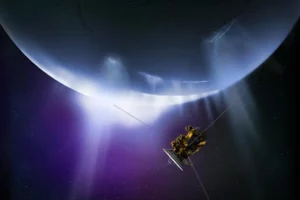- United Nations member states have voted to make an exception to allow Volodymyr Zelenskiy to address next week’s general assembly by video, despite Russian opposition. Of the 193 member states, 101 voted on Friday in favour of allowing the Ukrainian president to “present a pre-recorded statement” instead of in-person as usually required. Seven members voted against the proposal, including Russia. Nineteen states abstained.
- Virtually all the exhumed bodies in Izium had signs of violent death, Ukraine’s regional administration chief said of the mass burial site discovered after Kyiv’s forces recaptured the east Ukrainian town. Exhumers had uncovered several bodies with their hands tied behind their backs, and one “with a rope around his neck”, Oleg Synegubov, head of Kharkiv regional administration, said on Friday. “Among the bodies that were exhumed today, 99% showed signs of violent death,” he said on social media.
- The European Union was “deeply shocked” at the mass graves discovered by Ukrainian officials in Izium, said the bloc’s foreign policy chief, Josep Borrell. “We condemn these atrocities in the strongest possible terms.” The French president, Emmanuel Macron, also condemned what he described as the “atrocities” committed in Izium, joining growing outrage in western countries over the burial site.
- Ukrainian armed forces have hit four areas held by Russian troops, according to the general staff of the Ukrainian armed forces. The military also targeted an unloading station, it said, in turn preventing Russian forces from deploying additional reserves.
- Russia has accused Ukraine of carrying out targeted strikes in the cities of Kherson and Luhansk against top local officials who have been collaborating with Moscow. At least five Himars missiles crashed into the central administration building in Kherson, which Russian troops have occupied since March after arriving from Crimea. Video from the scene showed smoke pouring out of the complex. In the eastern city of Luhansk, a pro-Russian prosecutor died with his deputy when their office was blown up. The cause of the explosion was not immediately clear. President Volodymyr Zelenskiy’s senior adviser, Mikhailo Podolyak, said Ukraine was not behind the blast.
- Further south, the Russian-backed separatist authority in Berdiansk also blamed Kyiv for the “double murder” of a deputy head of the military civil administration and his wife, who headed the city’s territorial election commission for the referendum.
- In the southern oblast of Zaporizhzhia there were also reports on Friday of a “powerful explosion” in the Russian-occupied Melitopol, said Ivan Fedorov, mayor of Melitopol. “I hope the Russian fascists have suffered losses, among their personnel and equipment,” he said. “Awaiting good news from the armed forces of Ukraine.”
- The Russian president, Vladimir Putin, made his first public comment since his troops were forced to withdraw from the territories they held in the north-east, a move that prompted unusually strong public criticism from Russian military commentators. Putin said he invaded Ukraine because the west wanted to break up Russia. He grinned when asked about Ukraine’s recent military success, saying: “Let’s see how it develops, how it ends up.” Putin said nothing had changed with the ultimate goal of Moscow’s “special military operation” in Ukraine, which was to capture the Donbas.
- The United States department of defence has announced it is providing an additional $600m in military assistance to Ukraine to meet the country’s “critical security and defence needs”. In total, the Biden administration has committed about $15.8bn in security aid to Ukraine – $15.1bn since the beginning of Russia’s invasion in February.
- Switzerland on Friday aligned itself with the European Union in suspending a 2009 agreement easing rules for Russian citizens to enter the country. “The suspension of the agreement does not mean a general visa freeze for Russians but rather they will need to use the ordinary visa procedure to enter Switzerland,” the country’s federal council said in a statement. The EU took a similar step earlier, suspending a visa facilitation deal with Russia but stopping short of a wider visa ban in response to Moscow’s invasion of Ukraine.
Source :















